Business
OpenAI nonprofit gains $100B stake while retaining control of AI company

NVIDIA CEO and co-founder Jensen Huang commends President Donald Trump’s A.I. agenda and outlines what the country’s job future will look like on ‘Special Report.’
Artificial intelligence giant OpenAI on Thursday announced its nonprofit parent will retain control of the company while also gaining an equity stake worth more than $100 billion.
The move will allow OpenAI to raise new capital while also making its nonprofit parent company “one of the most well-resourced philanthropic organizations in the world,” according to Bret Taylor, chairman of OpenAI’s board.
OPENAI TEAMS UP WITH WALMART TO TRAIN MILLIONS OF WORKERS IN ARTIFICIAL INTELLIGENCE
“This recapitalization would also enable us to raise the capital required to accomplish our mission — and ensure that as OpenAI’s [public benefit corporation] grows, so will the nonprofit’s resources, allowing us to bring it to historic levels of community impact,” Taylor said in a statement.
In this photo illustration, the OpenAI logo is seen displayed on a smartphone screen. (Thomas Fuller/SOPA Images/LightRocket via Getty Images / Getty Images)
OpenAI and Microsoft also said in a joint statement on Thursday that they signed a non-binding memorandum of understanding (MOU) to shape their next phase of partnership and are actively working to finalize a definitive deal. The companies said they are focused on building “the best” artificial intelligence tools that are also safe.
OPENAI CEO SAM ALTMAN WARNS OF AI FRAUD CRISIS ‘VERY SOON’
“OpenAI and Microsoft have signed a non-binding memorandum of understanding (MOU) for the next phase of our partnership,” the two companies said in a joint statement Thursday afternoon. “We are actively working to finalize contractual terms in a definitive agreement. Together, we remain focused on delivering the best AI tools for everyone, grounded in our shared commitment to safety.”
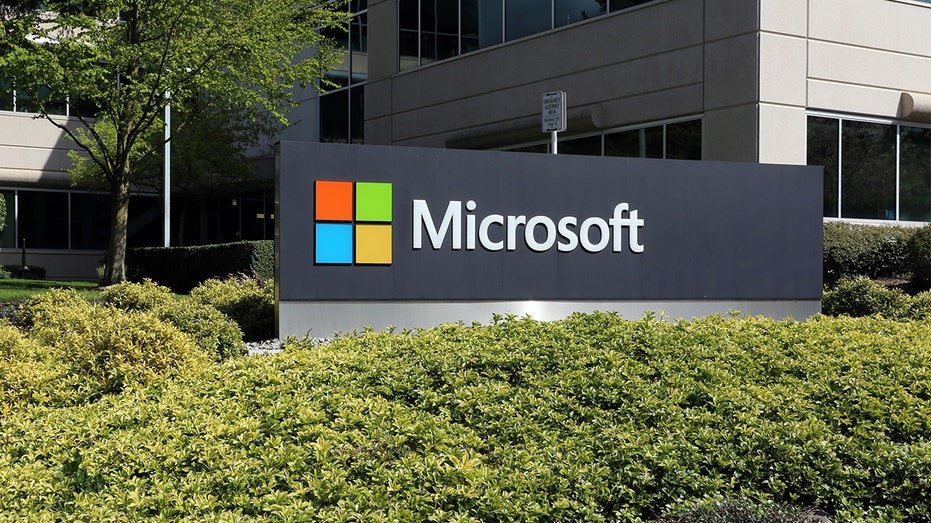
The Microsoft headquarters campus in Redmond, Washington. (iStock / iStock)
Microsoft has reportedly invested around $13 billion in the ChatGPT creator since 2019.
A MAJORITY OF SMALL BUSINESSES ARE USING ARTIFICIAL INTELLIGENCE
In May, OpenAI announced it was scuttling its plan to move the company away from a nonprofit structure to becoming a for-profit company. The ChatGPT-maker created a for-profit limited liability company (LLC), which it converted into a public benefit corporation that considers the interests of shareholders as well as OpenAI’s mission. The tech giant announced at the time that OpenAI’s nonprofit would have operational control over the public benefit corporation and would be a large shareholder in it.
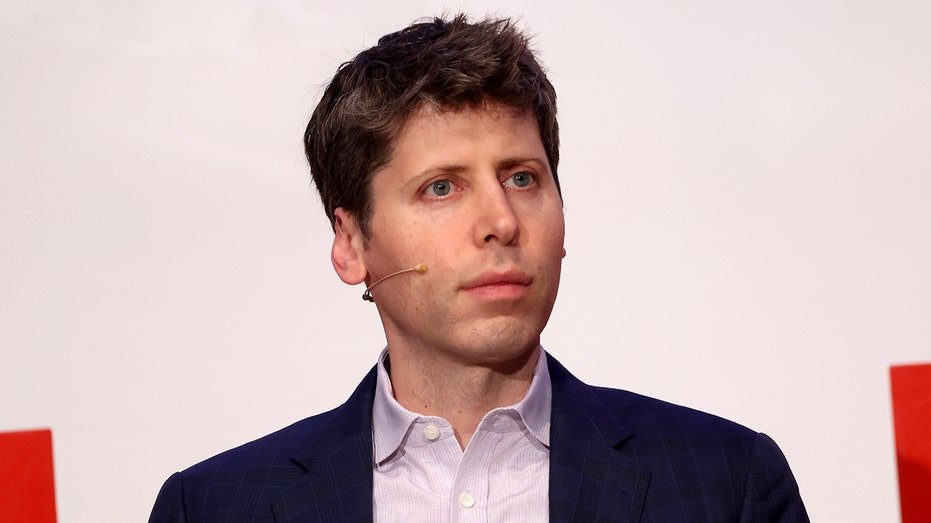
Sam Altman, co-founder and CEO of OpenAI, speaks during a panel discussion titled “The Age of AI” at the Technical University of Berlin on February 07, 2025, in Berlin, Germany. (Sean Gallup/Getty Images / Getty Images)
OpenAI CEO Sam Altman, who prompted the company’s exploration of moving to a for-profit structure to make it easier for the company to raise the large amounts of money for investments he thinks will be needed to achieve artificial general intelligence (AGI), sent a letter to employees at the time explaining the decision and what it means for the company.
GET FOX BUSINESS ON THE GO BY CLICKING HERE
“OpenAI was founded as a nonprofit, is today a nonprofit that oversees and controls the for-profit, and going forward will remain a nonprofit that oversees and controls the for-profit. That will not change,” Altman wrote in May.
FOX Business’ Eric Revell contributed to this report.
Business
UK economy saw zero growth in July
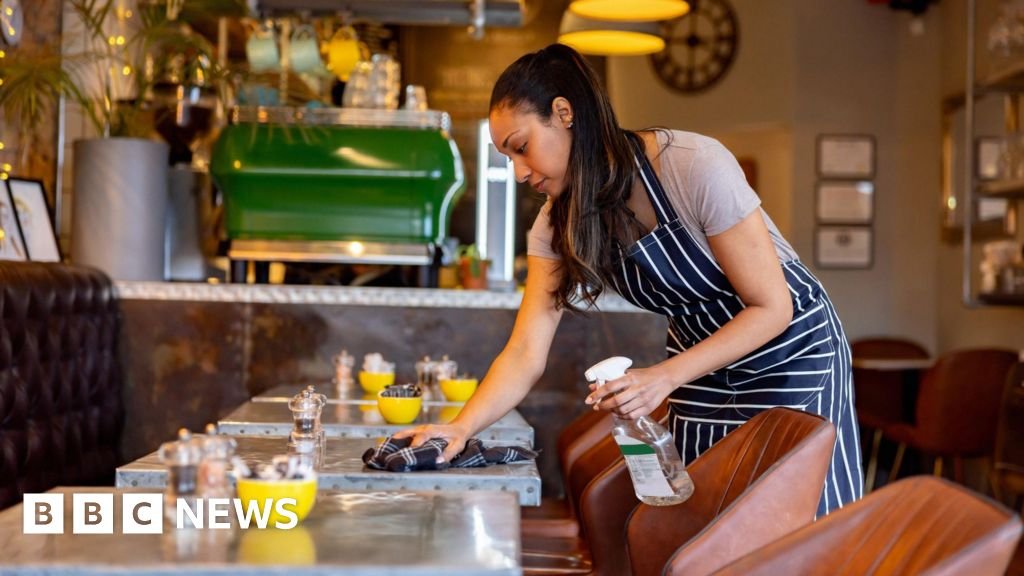
The UK economy failed to grow in July, according to the latest official figures.
The Office for National Statistics (ONS) said the economy saw zero growth in the month, following a 0.4% expansion in June.
However, monthly figures are volatile, and over the three months to the end of July, the economy grew by 0.2% compared with the previous three months, the ONS said.
The government is under mounting pressure to deliver on its key priority of boosting economic growth ahead of the Budget on 26 November.
The UK’s statistics body said the service sector performed well, helped by the health sector, computer programming and office support services.
However, this was offset by a weak performance in the manufacturing sector.
In the Budget, Chancellor Rachel Reeves will outline the government’s tax and spending plans with increasing speculation she will have to raise taxes to meet her self-imposed fiscal rules.
Yael Selfin, chief economist at KPMG UK, said the “weak start to the third quarter [is] a sign of things to come”.
“Economic activity is expected to slow in the second half of the year as the temporary factors which pushed up growth in the first half of 2025 begin to fade,” she said.
“Additionally, the later date of the Autumn Budget could prolong some uncertainties for businesses, delaying investment decisions and acting as a drag on growth until more clarity emerges.”
Responding to the latest growth figures, a Treasury spokesperson said: “We know there’s more to do to boost growth because whilst our economy isn’t broken, it does feel stuck.
“That’s the result of years of underinvestment, which we’re determined to reverse through our plan for change.
Shadow chancellor Sir Mel Stride said: “Any economic growth is welcome – but this government is distracted from the problems the country is facing.
“While the government lurch from one scandal to another, borrowing costs recently hit a 27-year high – a damning vote of no confidence in Labour that makes painful tax rises all but certain.”
Business
South Korea workers detained in US raid head home

More than 300 South Koreans who were detained in a massive immigration raid at a Hyundai plant in the US state of Georgia last week are due to arrive home on Friday.
Their return comes as the country’s president and Hyundai’s chief executive have warned about the impact of the raid.
A chartered Korean Air jet carrying the workers and 14 non-Koreans who were also detained in the raid took off from Hartsfield-Jackson Atlanta International Airport at midday local time on Thursday (17:00 BST). One South Korean national has reportedly chosen to stay in the US to seek permanent residency.
The plane is expected to arrive at Incheon International Airport at about 15:30 Seoul time (07:30 GMT) on Friday.
The departure was delayed by more than a day because of an instruction from the White House, South Korean President Lee Jae Myung said on Thursday.
President Donald Trump ordered the pause to check whether the workers were willing to remain in the US to continue working and training Americans, according to a South Korean foreign ministry official.
The BBC has contacted the White House for comment.
Lee also said companies would be “very hesitant” about investing in the US following the raid.
“The situation is extremely bewildering,” Lee added, while noting it is common practice for Korean firms to send workers to help set up overseas factories.
“If that’s no longer allowed, establishing manufacturing facilities in the US will only become more difficult… making companies question whether it’s worth doing at all,” he added.
Seoul is negotiating with Washington on visa options for South Korean workers “whether that means securing [higher] quotas or creating new visa categories”, Lee said.
On Friday, the South Korean foreign ministry said it had called for the US Congress to support a new visa for Korean firms.
During meetings with US senators in Washington this week, Foreign Minister Cho Hyun reiterated concerns among South Koreans over the arrests, the ministry said in a statement.
Meanwhile, Hyundai’s chief executive José Muñoz has said the raid will delay the factory’s opening.
Mr Muñoz told US media that the raid will create “minimum two to three months delay [in opening the factory] because now all these people want to get back”.
 AFP
AFPLast week, US officials detained 475 people – more than 300 of them South Korean nationals – who they said were working illegally at the battery facility, one of the largest foreign investment projects in Georgia.
LG Energy Solution, which operates the plant with Hyundai, said that many of its employees who were arrested had various types of visas or were under a visa waiver programme.
A worker at the plant spoke to the BBC about the panic and confusion during the raid. The employee said the vast majority of the workers detained were mechanics installing production lines at the site, and were employed by a contractor.
South Korea, a close US ally in Asia, has pledged to invest tens of billions of dollars in America, partly to offset tariffs.
Media in the country have described the raid as a “shock,” with the Dong-A Ilbo newspaper warning that it could have “a chilling effect on the activities of our businesses in the United States”.
The Yonhap News Agency published an editorial on Thursday urging the two countries to “cooperate to repair cracks in their alliance”.
The timing of the raid, as the two governments engage in sensitive trade talks, has raised concern in Seoul.
The White House has defended the operation at the Hyundai plant, dismissing concerns that the raid could deter foreign investment.
On Sunday, US President Donald Trump referenced the raid in a social media post and called for foreign companies to hire Americans.
The US government would make it “quickly and legally possible” for foreign firms to bring workers into the country if they respected its immigration laws, Trump said.
Additional reporting by Hosu Lee in Seoul
Business
Whittlesey butcher makes appeal for customers on social media

 John Devine/BBC
John Devine/BBCA shop that has housed butchery businesses for more than 100 years could face the chop unless more people use it.
Jones Butchers has stood on Broad Street in Whittlesey, near Peterborough, since 1957 and before it, two other butchers dating back to the early 1900s have been there.
Mark Field, a butcher with 30 years’ experience, took over the business in June but has appealed for more customers on social media, putting his struggles down to the cost of living and the convenience of supermarkets.
Trade association National Craft Butchers (NCB) said beef prices were at an historic high, with the cost of meat generally rising 17%, which had made it tough for independent butchers.
 Mark Field
Mark FieldAfter always working for other people in the butchery industry, Mr Field, 47, thought he would try and go it alone and run his own shop after an opportunity arose.
“I am not regretting taking it on because I have a love for the job and I’ve always wanted to do this,” he said.
But despite a summer perfect for barbecues, Mr Field said he had already been forced to cut down on staffing hours and upped his own shift patterns, working 60 hours a week.
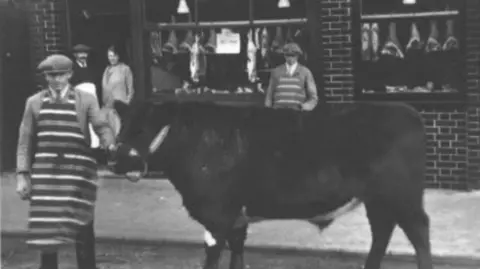 GRAHAM JONES
GRAHAM JONES“Things have picked up a bit since I made the plea for more customers on Facebook last week, so I will keep my fingers crossed”, he said.
But he added: “The cost of meat has been rising across the board, and I think younger people can sometimes feel intimidated by coming in to a shop where they have to ask for something. They prefer picking up meat in packs from a supermarket.”
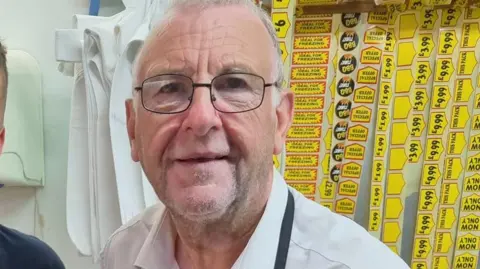 BENT AND CORNWELL
BENT AND CORNWELLAdrian Cornwell, who runs Bent and Cornwell in Ely, noticed that business had also been quieter this year.
“We can’t compete with supermarkets on prices, but what we can do is share our vast knowledge with our customers on how best to prepare various cuts of meat,” he said.
Mr Cornwell added that he had tried to replicate how the supermarkets displayed their meat, because “that’s what the shopper expects”.
He agreed with Mr Field that the younger generation seemed to forgo visiting butchers’ shops, preferring the convenience of the supermarket.
Beef prices have increased to historic highs of £7 per kg due to constrained supply and continued consumer demand, said NCB.
According to the British Retail Consortium, food prices rose by 4% in July from a year earlier.
Meat prices have also increased by 17% up to June this year.
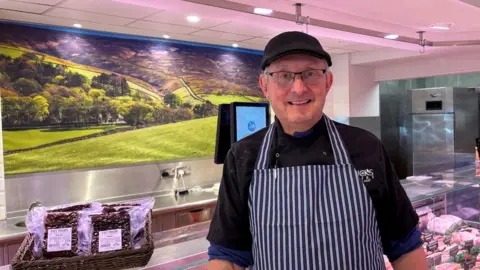 John Mettrick
John MettrickJohn Mettrick, legislation director at NCB and a fifth generation butcher, said it was “tough for all businesses on the High Street, not just butchers”.
He said his own shop had managed to entice younger customers by selling “kitchen-ready” meals.
“I do a thing called ‘fake-a-ways’, stir fries, Indian dishes, all prepared ready for the oven, it saves so much time,” he said.
-

 Business2 weeks ago
Business2 weeks agoThe Guardian view on Trump and the Fed: independence is no substitute for accountability | Editorial
-
Tools & Platforms1 month ago
Building Trust in Military AI Starts with Opening the Black Box – War on the Rocks
-

 Ethics & Policy2 months ago
Ethics & Policy2 months agoSDAIA Supports Saudi Arabia’s Leadership in Shaping Global AI Ethics, Policy, and Research – وكالة الأنباء السعودية
-

 Events & Conferences4 months ago
Events & Conferences4 months agoJourney to 1000 models: Scaling Instagram’s recommendation system
-

 Jobs & Careers2 months ago
Jobs & Careers2 months agoMumbai-based Perplexity Alternative Has 60k+ Users Without Funding
-

 Podcasts & Talks2 months ago
Podcasts & Talks2 months agoHappy 4th of July! 🎆 Made with Veo 3 in Gemini
-

 Education2 months ago
Education2 months agoMacron says UK and France have duty to tackle illegal migration ‘with humanity, solidarity and firmness’ – UK politics live | Politics
-

 Education2 months ago
Education2 months agoVEX Robotics launches AI-powered classroom robotics system
-

 Funding & Business2 months ago
Funding & Business2 months agoKayak and Expedia race to build AI travel agents that turn social posts into itineraries
-

 Podcasts & Talks2 months ago
Podcasts & Talks2 months agoOpenAI 🤝 @teamganassi


